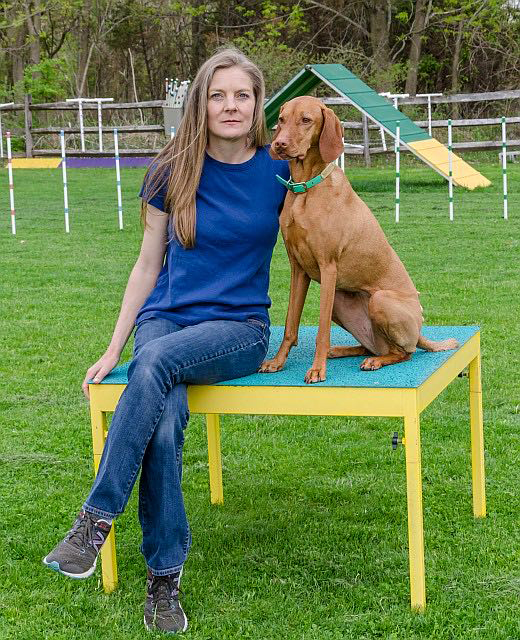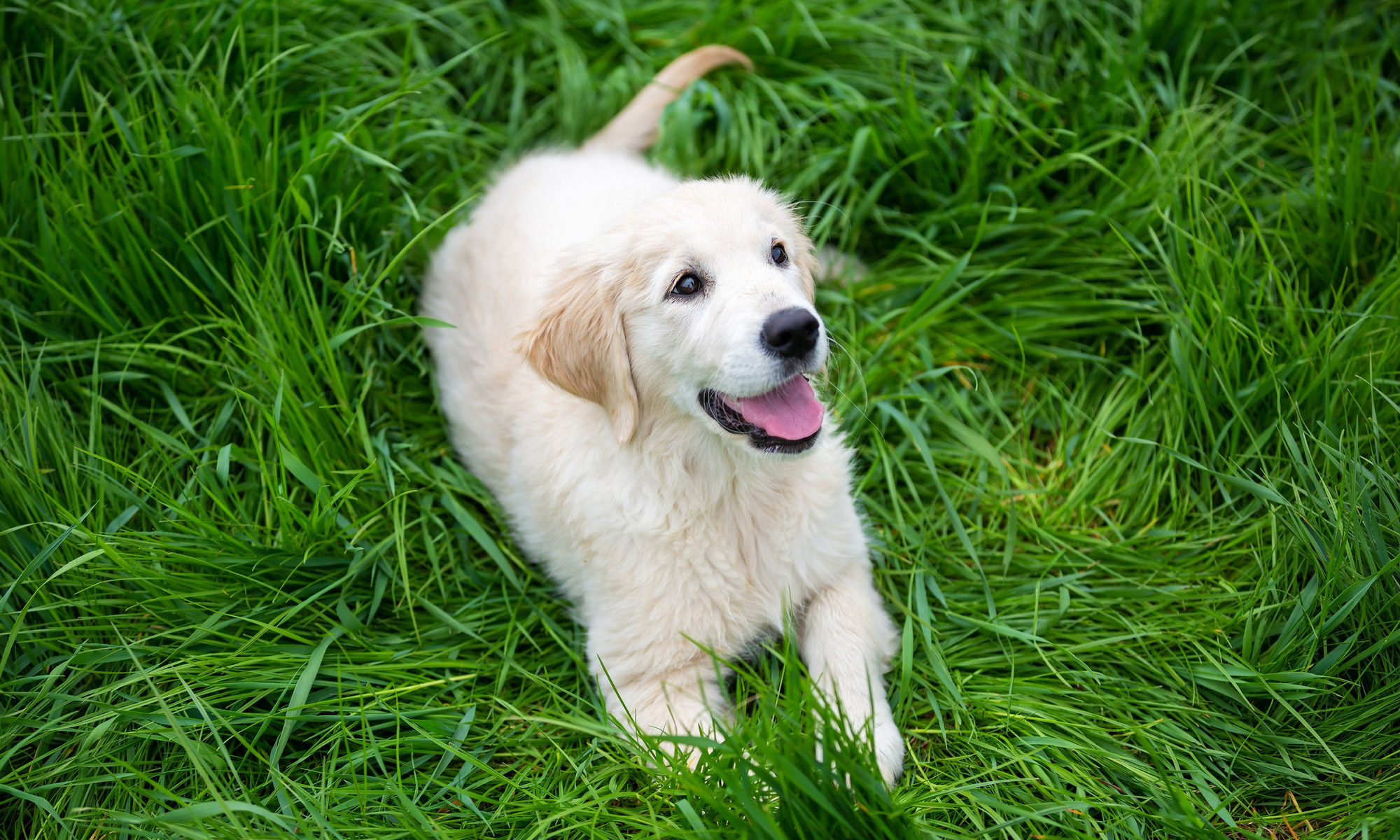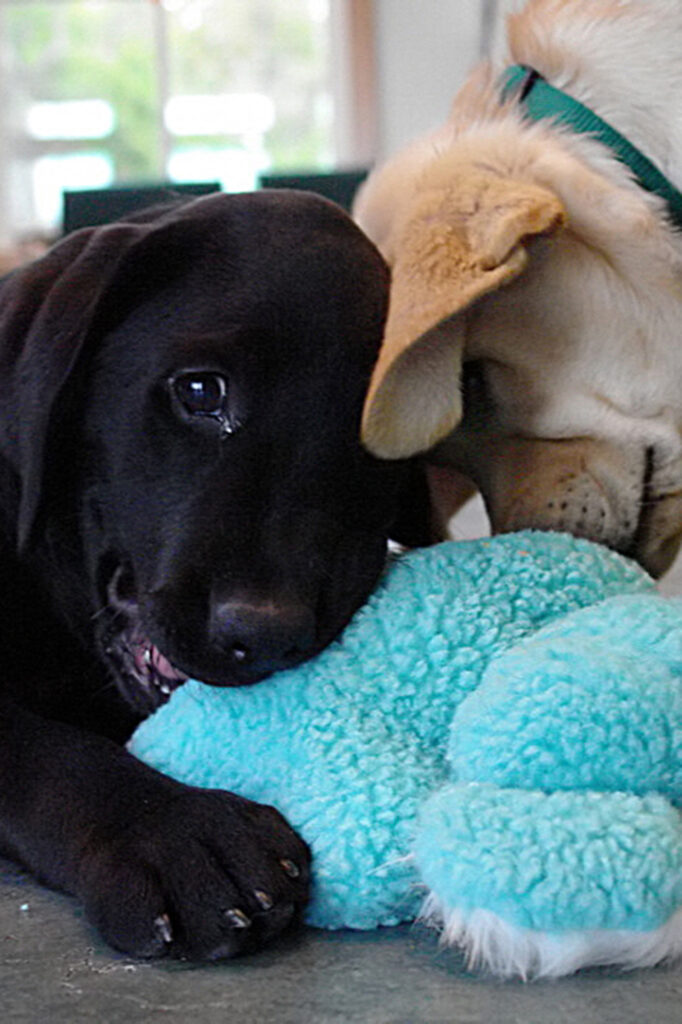About Us
About Anne Macaulay, Ph.D., Certified Professional Dog Trainer.

Anne Macaulay, Ph.D., Certified Professional Dog Trainer
Anne is a former biologist turned full-time dog trainer. She enjoys applying the teaching and problem solving skills she learned as a scientist to solving dog training and behavior problems. She takes pride in helping owners meet their goals, whether it’s getting off to the best possible start with a new puppy or teaching a rambunctious rescue to walk down the street without barking at all the neighbors. Here are her answers to some of the questions people frequently ask when choosing a dog trainer.
Dog training was my avocation for 10 years when I participated in obedience competitions with my own dog and assisted with training classes. Since 1997, I have dedicated myself full-time to dog training. For three years, I apprenticed with another trainer, teaching classes under her supervision and training dozens of dogs to the point of reliable off leash obedience. Since 2000, I have run my own business teaching several hundred dogs and their owners each year. I also volunteered for our local shelter evaluating dogs and teaching volunteers how to handle dogs safely from 2002 to 2020.
I have a Ph.D. in biology, an excellent background for understanding the science of animal behavior. Like the majority of dog trainers, my education in dogs comes primarily through self-education: apprenticing, attending conferences and seminars, networking with other trainers through our local DogSpeak group, reading texts on dog training and veterinary behavior, and of course working hands on with hundreds of dogs. I regularly attend seminars given by top trainers and behaviorists from around the country including Pam Reid, Jean Donaldson, Patricia McConnell, Brenda Aloff, Ken Ramirez, Sheila Booth and John Rogerson.
I am also a National Board Certified Health and Wellness Coach, and I use those human coaching skills to motivate and support my clients.
I am a Certified Professional Dog Trainer (CPDT-KA) with the Certification Council for Professional Dog Trainers.
Sure! I teach primarily by lure and reward methods, using a food treat like a magnet. Once your dog has learned the desired behavior, you will be shown non-confrontational ways to get your dog to respond consistently without depending on a treat in your hand. Dog training is becoming a more polarized profession with some trainers insisting that dogs should never hear the word “No” and others relying on harsh physical corrections or shock collars (also known as e-touch or gentle stimulation). I believe that some balance can be found between these two viewpoints. I don’t think that punishment should be our primary method of teaching, but I also think it is unrealistic to think that an owner will never yell at or punish a dog. I am happy to discuss with you how to use punishment correctly and more importantly how to train and manage your dog so that it just isn’t necessary.
You are always welcome to come observe one of my classes. Please email for a schedule and directions.
Often trainers will insist that you put a choke chain on your Maltese puppy or that you should be able to walk your newly adopted Boxer with just a buckle collar. I believe that different equipment works better for different dogs. You will have a choice between a regular buckle collar, a front clip harness such as the Easy Walk, a head halter such as the Gentle Leader, or if you have a non-reactive dog who pulls, you may use a pinch collar.
I do not allow choke chains in class since we do not use leash corrections.
You will also need a six foot leash, lots of treats, and your dog’s favorite toy.
Agility classes and Intermediate Obedience classes are taught outdoors on grass in a fully fenced 100’x120’ field. We are way back from the road so the primary distractions are wildlife.
The Certification Council for Professional Dog Trainers, of which I am a member, prohibits members from offering guarantees. Dogs vary widely in how quickly they learn. Results also depend on how frequently you practice and how consistently you follow recommendations. If you are offered a guarantee that seems to be too good to be true, it probably is!



What You Should Know About Choosing A Dog Trainer
Dog training is an exciting profession that appeals to many people. Since dog training is an unregulated profession, anyone can call themselves a dog trainer regardless of education or experience. National chains and franchises advertise that you can become a dog trainer in a matter of weeks with no previous experience with dogs necessary.
Inexperienced trainers may be able to teach your dog to sit or lie down, but they may not be prepared to recognize early signs of aggression, solve complex behavior problems, deal with difficult breeds, or tailor their instruction to fit your needs and situation.
It is critical to interview dog trainers about their background and approach to dog training to ensure that you find a well-qualified trainer who will be a good fit for you and your dog.
If you live outside of my service area, you can look for a trainer near you on the Certification Council For Professional Dog Trainers website.